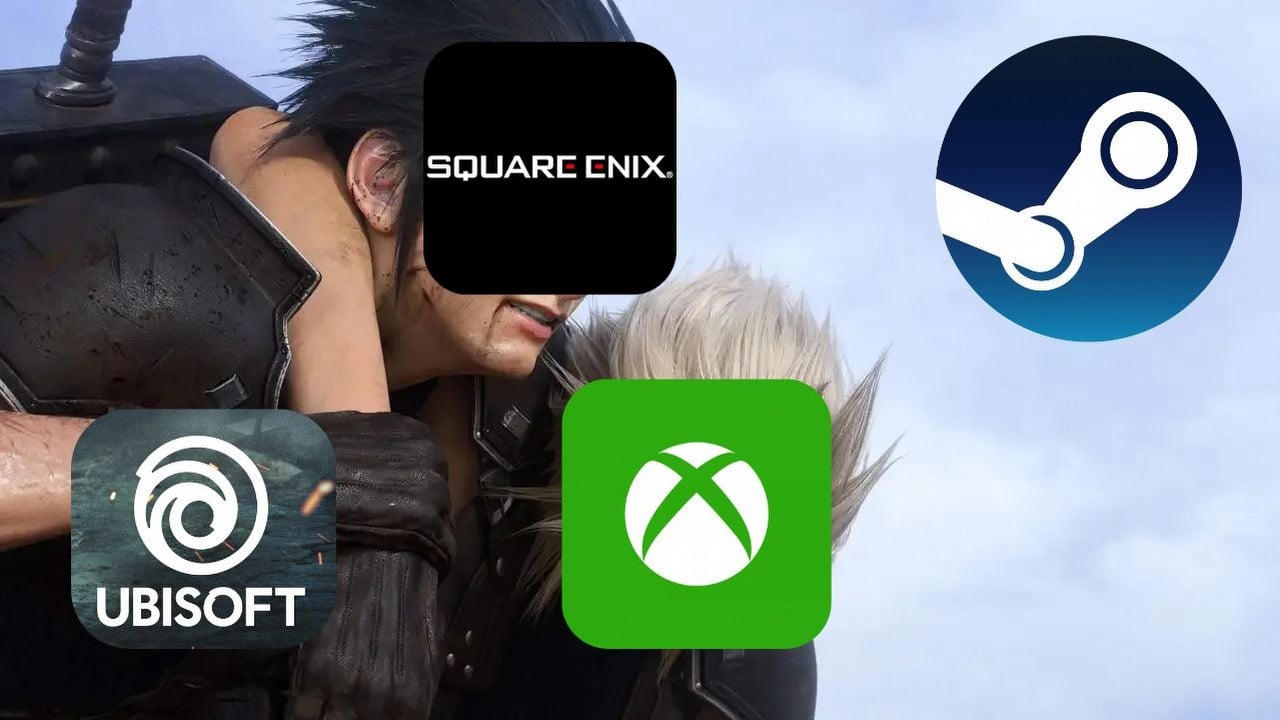Third-Party Console Exclusive Games May Soon Be Obsolete
Multiplatform strategies continue to prove fruitful for third-party publishers like Square Enix and Xbox. Is it only a matter of time until exclusives are gone?
1

Author and Bloomberg reporter Jason Schreier had an interesting take posted on social media recently. The post was in response to Circana’s Mat Piscatella sharing that Final Fantasy VII: Rebirth being the best selling game in the US market the week of January 25th. The previously PlayStation 5 exclusive title had a hugely successful launch on PC via Steam that week, and it appears to signal some changes within the larger gaming industry.
The age of third-party console exclusives might be on its way out
Schreier had two takes on the information. The first was that “Steam has become a bright spot for many game-makers as console sales have flattened” and “Console exclusives will become obsolete soon, especially for third-party publishers.” Looking at the first take, Steam is a huge platform for video game developers. There are more games on Steam than anywhere else, and it’s much easier for developers to publish a game there than work with one of the three major console companies. Plus, Steam is such a huge market, as shown with Final Fantasy VII: Rebirth, but also other PlayStation published titles like Helldivers 2 (which became PlayStation’s fastest selling game in the weeks after its launch early last year). Why would a developer want to restrict itself to one box or platform, when there’s such huge potential on PC?
Looking at the second take, it’s making less and less sense for third-party publishers to restrict themselves. Square Enix, the developer of Final Fantasy VII: Rebirth and other huge RPGs, has stated their intention to shift to a multiplatform strategy. Obviously, when talking about exclusives becoming “obsolete” this doesn’t mean that Mario Kart and The Legend of Zelda will show up on PlayStation 5 tomorrow or God of War and Astro Bot will launch with the Switch 2 later this year. But just look at Xbox making headlines recently for being the biggest video game publisher in the world as more and more of its first-party games make the jump to PlayStation 5.
Ubisoft has been in the news lately not because it has put out particularly bad games, but just that they have not been performing as well. At least part of this could have to do with their insistence that some of their games are only available on consoles and their own PC platform, Ubisoft Connect, rather than Steam. Star Wars: Outlaws reportedly underperformed in sales for Ubisoft, as did the critically praised Prince of Persia: The Lost Crown. Both of those games launched on Steam months after their console and Ubisoft Connect launch. With Ubisoft teetering on the edge of a sale, and banking a lot on the upcoming Assassin’s Creed: Shadows, if they make it out of the next year intact, it would make a lot of sense for them to start releasing games on Steam the same day as other platforms.
Steam being the only profitable platform for PC games is not a great scenario either. If Steam controls the success and failure of any video game, that’s giving it too much power. But at this point, there aren’t very many alternatives. Epic Games Store is there, but outside of Fortnite it is tough to compete with Steam’s number of active users. Maybe something will change in the future, but until something changes, developers are generally stuck with Steam.
As with most things, this is a slow process. This doesn’t mean that Xbox won’t make another console after the Series X/S or there won’t be a PlayStation 6. But will there be a PlayStation 7? Or a PlayStation 8? Maybe. The games industry has changed a lot in the last few console generations. Xbox exclusives are coming to PlayStation. The Steam Deck is a huge success. The Switch 2 is going to launch later this year. We might even have Grand Theft Auto 6 by the end of this year, if it doesn’t get delayed. No matter what, by 2026, the gaming landscape is going to look entirely different from how it looks now.
1

Author: Matt Buckley
Matt has been writing for Gamepressure since 2020, and currently lives in San Diego, CA. Like any good gamer, he has a Steam wishlist of over three hundred games and a growing backlog that he swears he’ll get through someday. Aside from daily news stories, Matt also interviews developers and writes game reviews. Some of Matt’s recent favorites include Arco, Neva, Cocoon, Animal Well, Baldur’s Gate 3, and Tears of the Kingdom. Generally, Matt likes games that let you explore a world, tell a compelling story, and challenge you to think in different ways.
Latest News
- Elite Mod lets you play the Tau faction in Warhammer 40K: Dawn of War 2
- Huge Marvel Adventures mod now with new superheroes, including Sentry
- Butcher's Summit, an impressive free diselpunk FPS, has been released
- Free FPS on Half Life engine gets big update
- On February 3, gaming history could change forever. Red Dead Redemption 2 one step away from a major achievement


